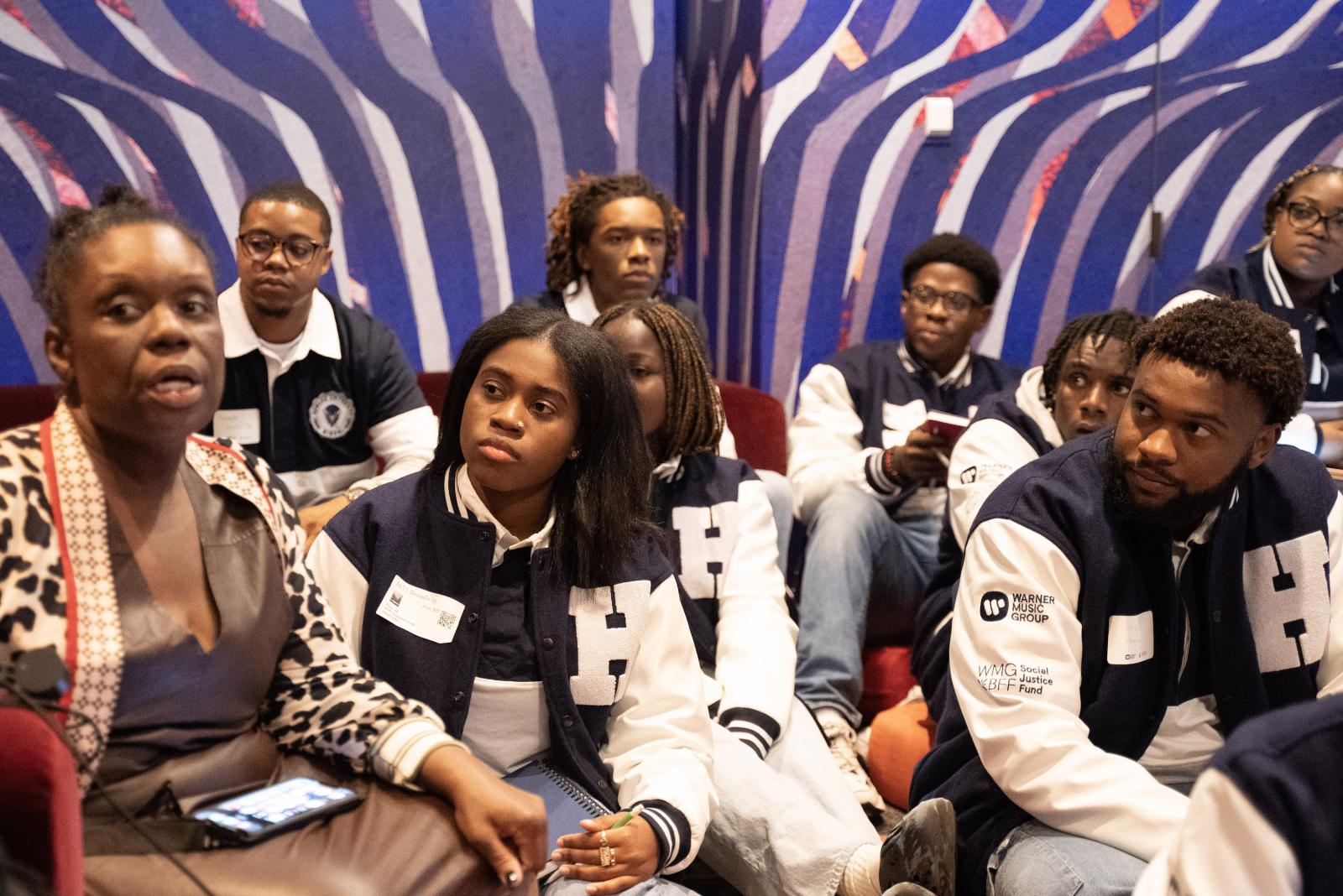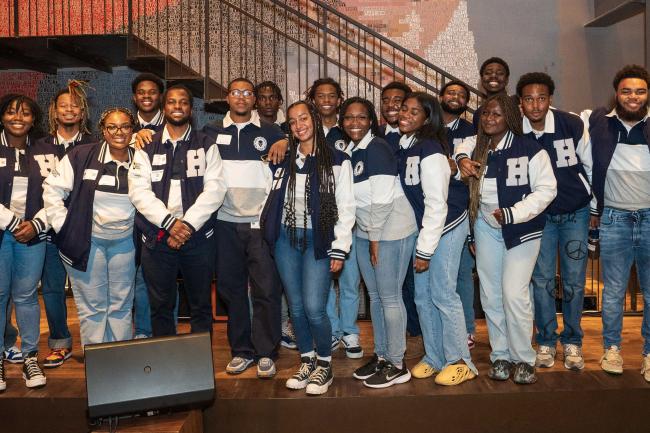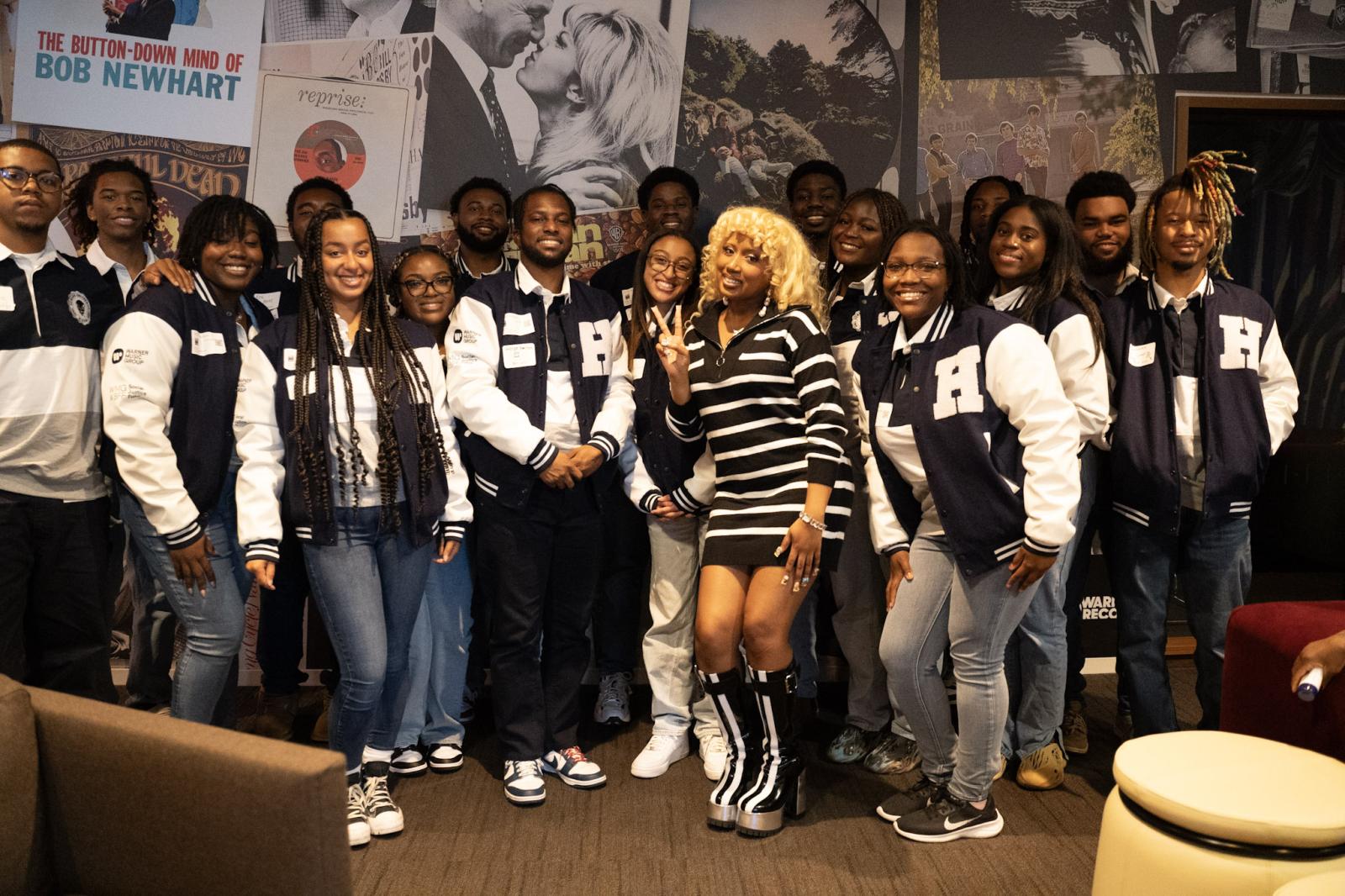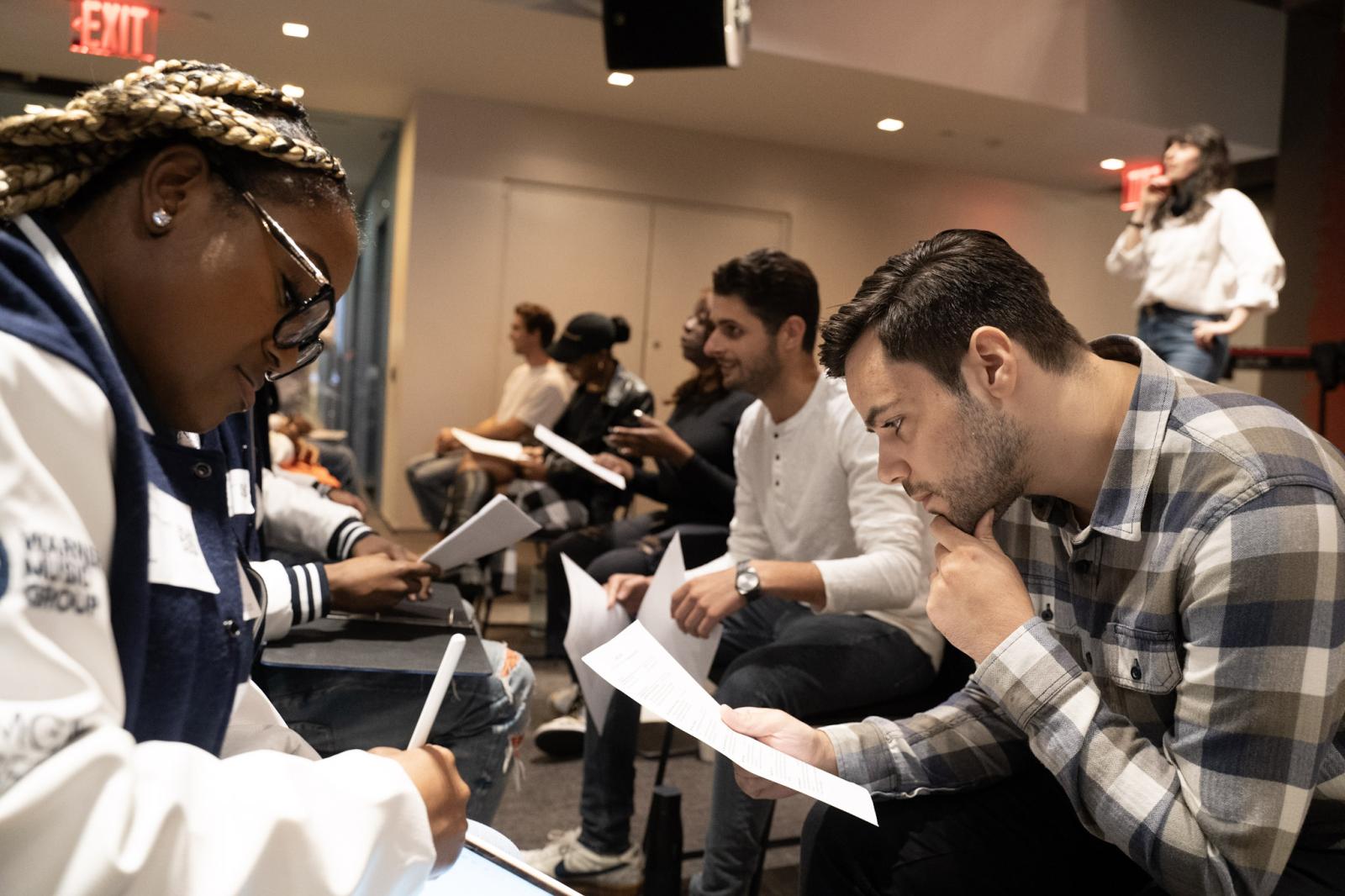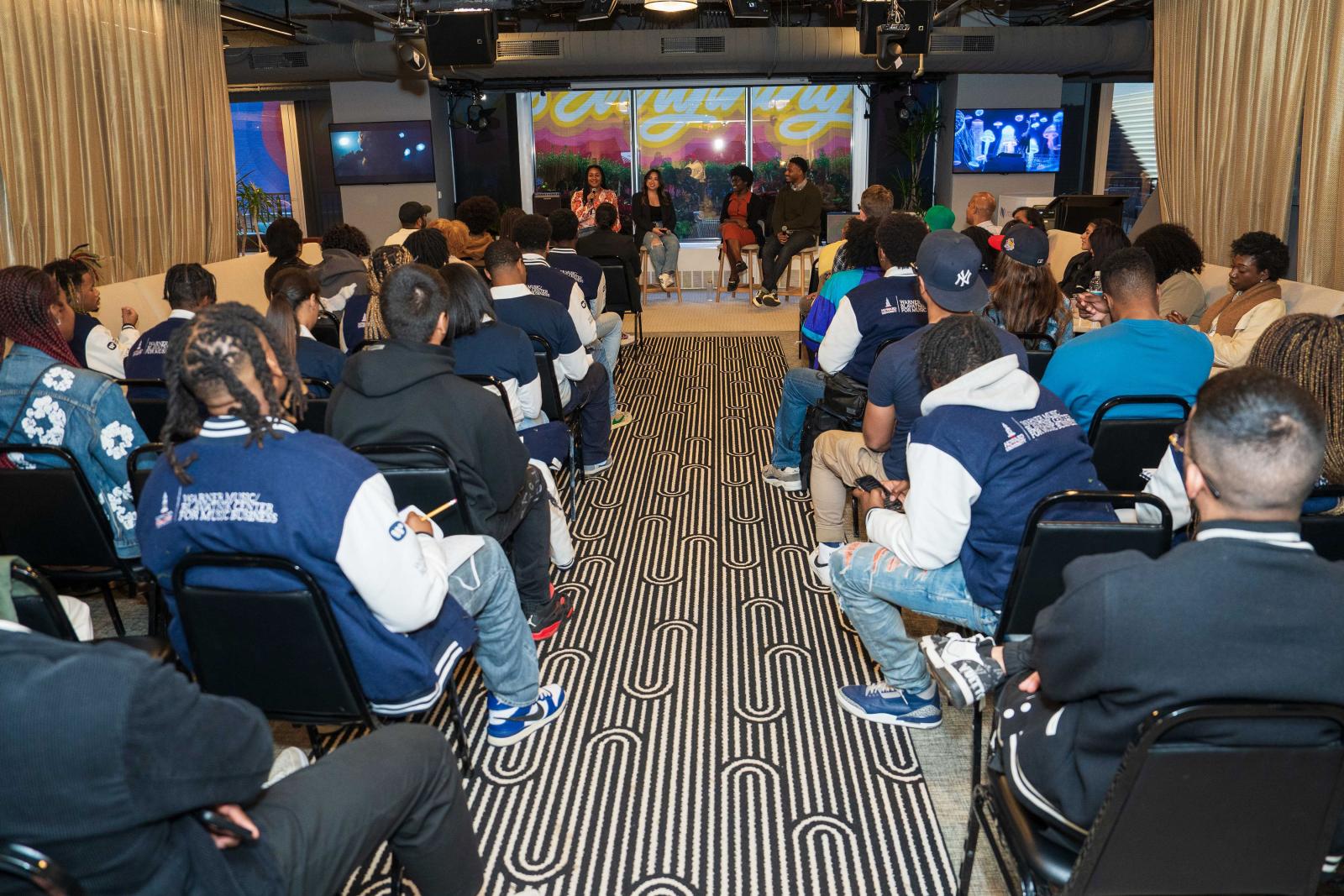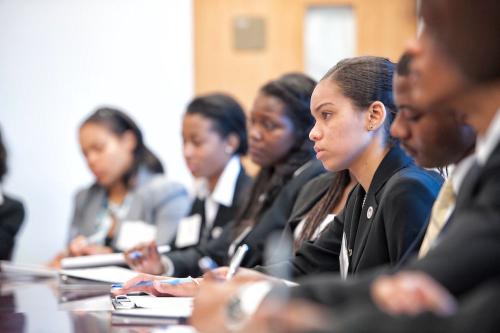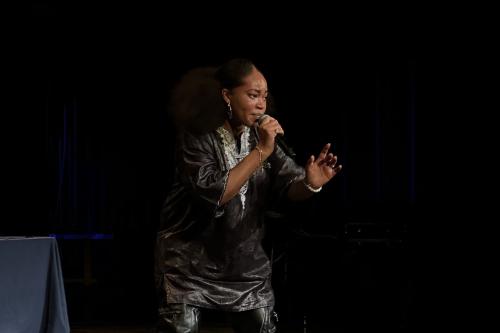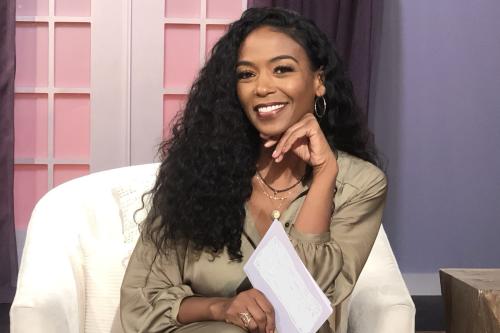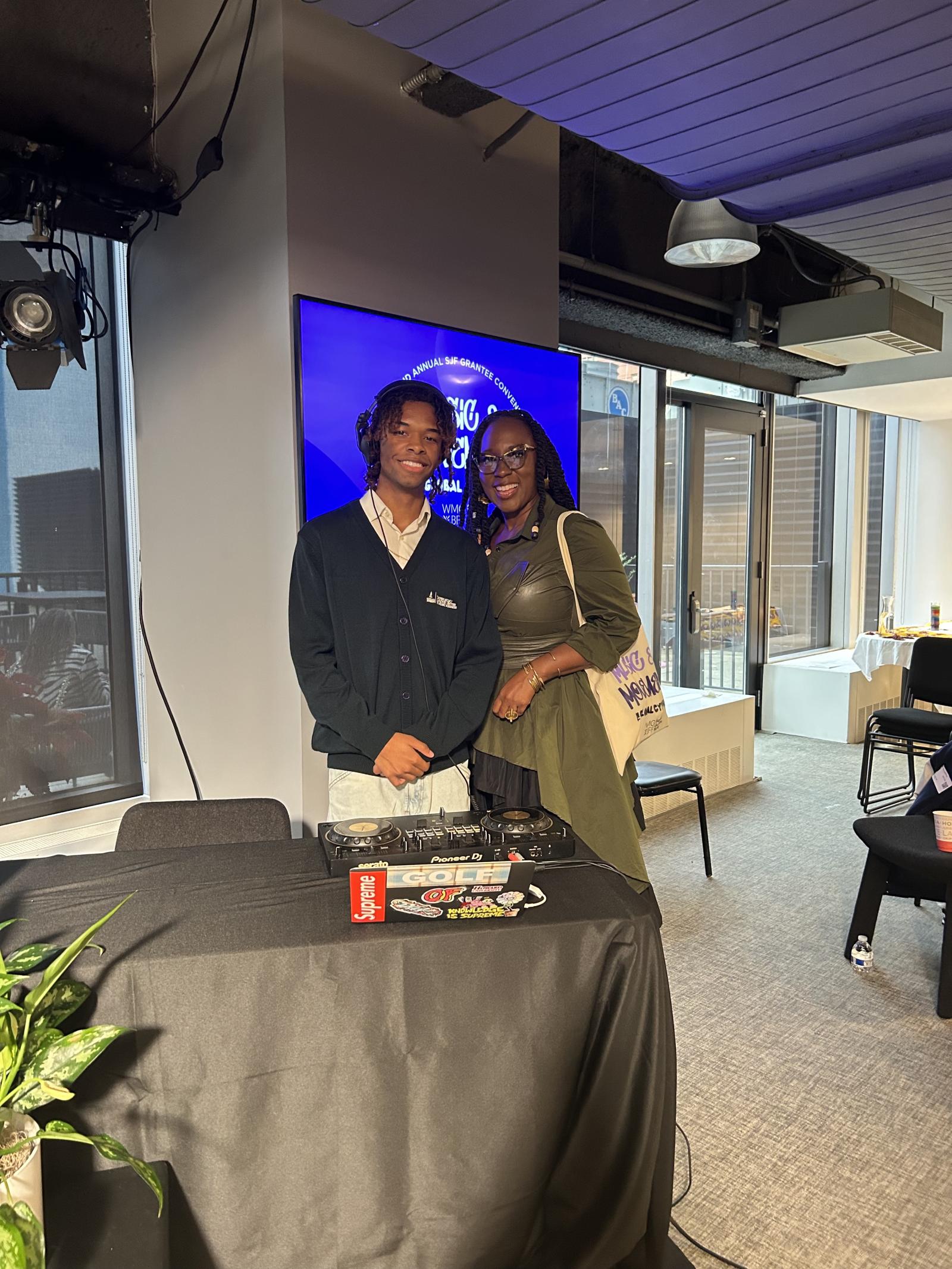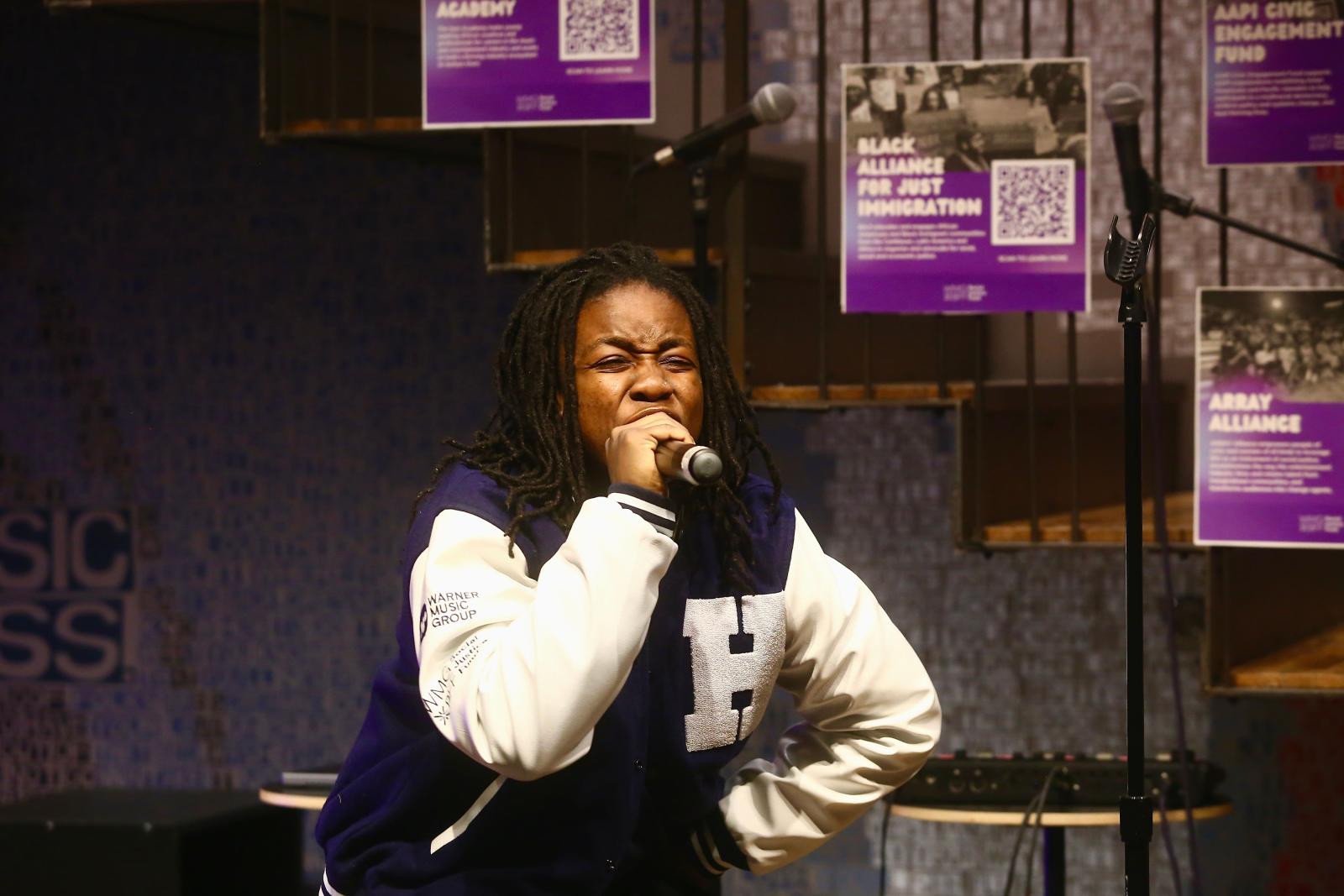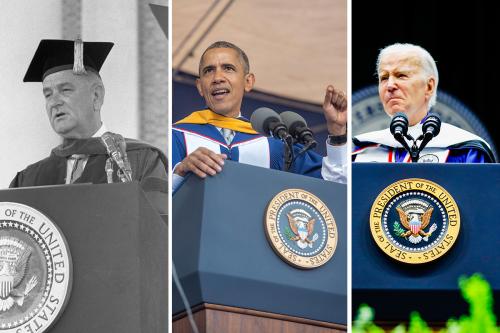At 5:30 a.m. on an October day, a bus outside of the School of Business buzzed with about 30 students preparing for a trip to New York. These students are Warner Music/Blavatnik Center for Music Business fellows.
The group was headed to the Warner Music Group/Blavatnik Family Foundation Social Justice Fund’s “Movement & Music: The Global Cypher Grantee Convening,” a program that highlights the relationship between culture and movement building.
School of Business alumna Jasmine Young (B.A. ’94) has been the director of the Warner Music/Blavatnik Center for Music Business since its founding by fellow alum Julian Petty (B.B.A. ’99) in 2021. Young is a native New Yorker who became a promotions and marketing manager with Def Jam Records immediately following her time at Howard.
So far, the Warner Music/Blavatnik Center for Music Business has been named the best music business school in the nation on Billboard’s Top Music Business School list two years in a row. Fellows have earned jobs and internships at SOURCE Magazine, Live Nation, and Warner Records. Lil Durk’s Neighborhood Heroes organization also houses two fellows.
With a goal of building out a music business program for Black talent, the Howard University Warner Music/Blavatnik Center for Music Business is a recipient of the $4.9 million grant from the Blavatnik Family Fund.
“We will remain grateful for this partnership and continue to do the work,” Young says. “That’s why the invitation to the conference is amazing and we consider ourselves fortunate to be amongst other social justice warriors in the music business.”
Young says the invite to Warner Music’s second global cypher, a reconvening of the grant recipients, is “momentum.”
“This trip is important, not only for our graduating seniors, but for the development of our program,” Young said. “I became inspired to do more, continue to learn more, and serve our students and our Howard community.”
The Blavatnik Family Foundation Social Justice Fund is a pledge from the Warner Music Group to allocate $100 million over 10 years to organizations and groups who elevate marginalized groups, specifically Black communities.
Lorelei Williams serves as the executive director of the Warner Music Group/Blavatnik Family Foundation and the Social Justice Fund.
“It’s really about advancing social justice and racial justice by using art and culture as the fuel for all the changes that we want to make in our society; education, criminal justice reform, all the different things we know are barriers for our progress to equity,” Williams said.
Once the Blatvanik fellows arrived to the Warner Music/Atlantic Record office in Times Square, they were met by Mackenzie Aliano, Warner Music Group’s director of communications and marketing.
The students then attended seminars with experts within the music business industry.
Atlanta rapper Baby Tate spoke to the student cohort in a question-and-answer session that gave students an intimate look at her climb to fame. Born Tate Farris, Baby Tate shared her strategy to curating authentic relationships with her audience through social media, how she began songwriting at 13 and building her career at 19, and the importance of relationships with other Black women in the industry.
Career development workshops continued throughout the day, as Warner Music Group employees conducted 60-second mock interviews and provided resumé writing advice.
“Some business decisions can be made in 60 seconds or less,” Aliano says to the fellows. “If someone’s looking at your resume for 60 seconds or more, that’s a big deal and you should take note of that.”
In two-minute drills, Warner professionals challenged student fellows to answer one interview question and graded their responses.
“I learned a lot and reworked my resume in ways I didn’t think was possible,” says Ricardo Julien, a senior marketing major and Blavatnik fellow. “The Warner executives taught me about using key words from the description of jobs to put those in my resume and to make sure they’re finding me in ways they can’t find other candidates.”
During Warner’s Young Professionals Panel, students heard from the company’s young professionals of color: Pam Palines, manager of the Warner Music U group; Vanessa Joseph, a senior programming director with over a decade with Warner; and Mark McDonald, the finance manager of Warner.
The trio all started in junior positions and internships with Warner and described how they used passion and hard work to grow in their careers. Gaelle Castor, a junior finance major, says the trip’s convening prepares her to succeed in the ever-changing business world.
“This reassures me that I'm capable of being in this space and pursuing this career of being an executive and being a CEO,” Castor said. “It’s very encouraging and inspiring.”
Day 2 – Times Square, N.Y. 8:30 a.m.
Howard has this long legacy and tradition of excellence of giving back and creating leaders, and that’s where we find here. I think it’s in our DNA.”
Howard University took center stage during the second day of the Warner Music Global Cypher. Marcellus Williams, a junior marketing major from Los Angeles, served as the day 2 opening deejay.
Williams showcases a skill of musicality that transcends popular music as he fused different eras of hip-hop and rap together to keep listeners entertained and “centered in raw authentic crowd engagement.” Deejaying became a COVID hobby, but with the help of the Blavatnik Center, Williams now serves as their resident DJ for the 2023-2024 academic year.
“I like to create new or unique feelings,” Williams says. “Especially at an HBCU because there’s a lot of different people there, there’s different diasporas across our campus. It was helpful in expanding my tastes.”
After Williams pumped the crowd up, alumna Toni Blackman (B.A. ’91) took the floor during her opening session, “The Wisdom of the Cypher.”
Blackman, the first global hip-hop ambassador and member of the Hip-Hop Cultural Initiative during college, discussed how freestyle and cyphers create an atmosphere that spark wisdom and community connections. Blackman also founded the Howard’s Freestyle Union in 1994.
“When I started doing hip-hop and social impact work, there was all this stigma attached to it with the politics and this idea of ‘you’re not going to be able to work in the industry,’” Blackman said. “Now everything has changed, now we’re at Warner having social justice conversations. That’s the center focus of this and I think that's beautiful. I think it’s powerful.”
With the Blavatnik Music Center attending the event as a Social Justice Fund grantee, and Blackman’s indelible imprint on hip-hop taking shape on the Yard, Blackman called the heavy Howard presence a reflection of the school’s commitment to leading and growing hip-hop's impact and culture.
“Howard has this long legacy and tradition of excellence of giving back and creating leaders, and that’s where we find here,” Blackman said after her segment. “I think it’s in our DNA. Once you go through that process, cross that threshold of graduating and become alumni, you step into an organization of global, international collective people of builders and creators.”
To conclude day two, The Social Justice Fund Reception at Atlantic Records featured a performance by Blavatnik Music Fund Fellow Aisha June. A founder of her organization, 360 Creativity Saves Lives, June’s work on campus transcends the music business fellowship. June continues Blackman’s work of amplifying Howard’s hip-hop culture by hosting freestyle cyphers and open mics.
June was selected in the Social Justice Fund’s CTRL Room Camp, a rigorous program that trains artists and producers within the Blavatnik network in a one-day training session. June, a rapper and singer, served as lead vocalist of the song.
Ebonie Smith, founder and president of Gender Amplified, oversaw the song’s process, working closely with June.
“She took this creative experience so seriously (and) meticulously, listening to every adlib 5,000 times to make sure it sounded amazing,” Smith said of June. “I wish [her] nothing but the best.”
Along with June, CTRL Room Camp members Taliban45, Ali Muhammad of Project Level and Sanni Sinitiat Omodolapo of the Sarz Academy contributed to the song. London-based pianist Luke Bacchus of Black Lives in Music created instrumentals. Manos Visibles’ Juan Daniel Landazuri Segura was also selected for the song.
June performed as a vocalist on the Atlantic Records soundstage.
She called the trip to New York “perspective enhancing” and said the performance was a testament to moving with “purpose and intentionality.”
“Just being able to perform, having the support of the center and my friends, this experience is life changing,” June said. “Not only was I in the room with A&Rs and different Atlantic and Warner department heads and organizers and recipients of the social justice fund, but I was also able to network both vertically and horizontally. I appreciate those who have been in the position to help me reach this position too.”
